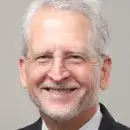
Thomas G. Palaima
Thomas G. Palaima is the Robert M. Armstrong Centennial Professor emeritus at University of Texas at Austin and Rawson Visiting Fellow at University of Cincinnati (2023-).
Palaima is a MacArthur fellow (1985-90) and holds an honorary doctorate from the University of Uppsala (1994). He now is Secretary General of the UNESCO Comité International Permanent pour les Études Mycéniennes (CIPEM 2025-2030). He is also a fellow of the Society of Antiquaries, London (2007-), and has been awarded three Fulbright fellowships (Greece 1979-80, Austria 1992-93 and Spain 2007).
His primary areas of interest in Aegean Prehistory are writing and sealing systems and primary documents (especially palaeography, palatial archives & close interpretations of texts and key terminology) and the development of Greek language and culture and oral poetic tradition 1600 BCE onward.
He is author or (co-)editor of eleven scholarly books. Most recently an invaluable resource for the field of Mycenaean Studies 51 years in the making: the definitive two-volume edition of the Linear B tablets from the Mycenaean Palatial Site of Pylos: Palace of Nestor IV, Parts .1 (Documents 1-621) and .2 (Documents 622-1589) with Emmett L. Bennett, Jr. (†), Jose L. Melena, Dimitri Nakassis, and Jean-Pierre Olivier (†) (August 18 2025), a mega biblion that is, exceptionally, a mega kalon.
See also: edited with R. Laffineur, ZOIA: Animal-Human Interactions in the Aegean Middle and Late Bronze Age (Aegaeum Annales liégeoises et PASPiennes d’archéologie égéenne 45: Peeters, Leuven – Liege August 2021) ix and 394 pages; 83 plates.
His work has covered many aspects of life in the Mycenaean period: writing and literacy (including doodles) and archival systems; decipherment techniques and theory; paleography and scribal administration; feasting rituals; the ideologies of kingship and manipulation of power; personal and official naming practices; warfare; religion, ritual and cult, especially feasting and sacrifice; phusis, metaphusis, and kosmos; labor mobilization; etymologies of problem words; history of scholarship; industries and larger comparative historical evaluations.
While a MacArthur fellow (1985-1990), Palaima founded PASP (1986-2024 at UT Austin; now transitioning to University of Cincinnati).
PASP is a research center concentrating on three scripts (Cretan Hieroglyphic, Linear A and Linear B) of the prehistoric Aegean area in the second millennium BCE and collaborative study of their texts. PASP has archives of early researchers, especially pertaining to attempts to decipher the scripts (Linear B successfully in 1952). Primary resources include offprints, work notes, correspondence among leading scholarly figures (Emmett L. Bennett, Jr., Alice E. Kober, Michael Ventris, Sir John L. Myres, John Chadwick, Johannes Sundwall, John F. Daniel, William Brice) and tablet photographs, all made accessible through systematic finding aids.
Palaima and PASP have been long been involved with editing and otherwise supporting the monograph series Aegeaum, the scholarly journal Minos, and bibliographical databases.
Palaima has studied, taught, written and lectured widely on human creative responses to war and violence and on music and songs as social commentary. (particularly connected with Bob Dylan, including Chapter 30, "Murder Most Foul," of Michael Chasar ed., The Poetry of Bob Dylan (publ Oct 15 2025).
He serves on the editorial advisory boards of The Dylan Review and Studi Micenei ed Egeo-Anatolici.
For the last 25 years, he has written 300+ public intellectual op eds, 100+ book reviews, and dozens of commentaries, poems, essays and articles for Times Higher Education, Athenaeum Review, The Dylan Review, War Literature and the Arts, Chronicle of Higher Education, Texas Observer, Michigan War Studies Review, the Los Angeles Times, Austin American-Statesman, Houston Chronicle, and USA Today, and on-line: classical-inquiries-poetry-project-recomposing heroes Center for Hellenic Studies Harvard University.
His public outreach also includes being scholarly adviser and coordinator of the Austin node of the NEH-Aquila Theater Project for Military Veterans The Warrior Chorus and faculty participant in The Free Minds Project designed to get adults who did not finish high school through reading and discussing and writing about important works of literature, working seriously on oral and written communication skills, and receiving advice from community college admissions officers prepared to attend community college and go further in higher education.